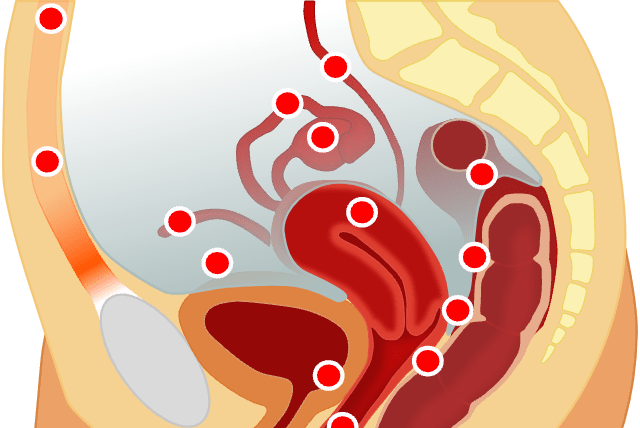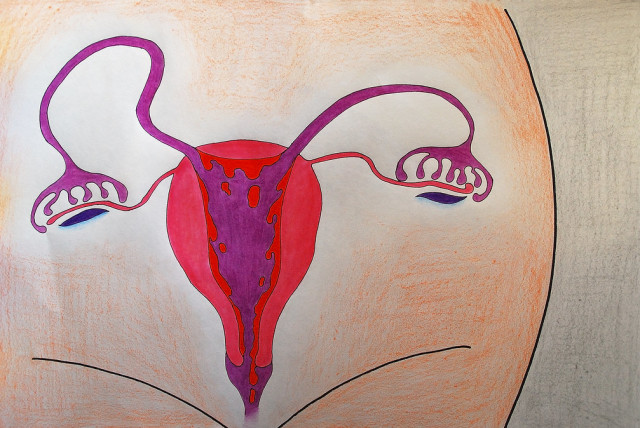Doctors discover possible hormone-free endometriosis treatment - study

The antibiotic designed to combat Fusobacterium was found to be an effective reducing agent for endometrial lesions.
A new treatment for endometriosis may have been discovered, according to a new study published on June 14.
The peer-reviewed study, published in the journal Science Translational Medicine, found that Fusobacterium appeared to cause endometrial lesions - patches of tissue meant to be used for uterine lining but that grow outside the uterus. These lesions are the main symptom of endometriosis and cause extreme pain, bloating and nausea among other things.
The antibiotic designed to combat Fusobacterium was found to be an effective reducing agent for endometrial lesions.
The study may have also found a potential cause for endometriosis. The protein Transgelin was found in patients with endometriosis in excessive amounts. Further investigating this, the researchers found that overgrowth of growth factor beta (TGF-β) inhibited the body’s ability to control transgelin production.
“In this study, we demonstrated that the Fusobacterium-TAGLN-endometriosis axis is frequently dysregulated in endometriosis,” said Dr. Yutaka Kondo, one of the study's authors. “Our data provide a strong and novel rationale for targeting Fusobacterium as a non-hormonal antibiotic-based treatment for endometriosis.”
What is endometriosis?
Endometriosis is a condition in which the uterine tissue which normally is restricted to the lining of the uterus, grows in other places like the ovaries and the fallopian tubes.
One in ten women aged 15-49 years old has endometriosis. The symptoms of endometriosis include pain in the lower stomach, back or pelvis, significant pain during menstruation, pain during or after penetrative sex, pain when using the bathroom during the menstrual period and difficulty getting pregnant.
While there is no known cure for the treatment, doctors may suggest taking over-the-counter pain medicine, using hormone-based contraceptives, surgery to remove patches of rogue endometrial tissue or a hysterectomy whereby the uterus is removed entirely.
The cause of endometriosis is unknown, although researchers have suggested it could be the result of genetics or a problem with the immune system.
How did the researchers discover the impact of Fusobacterium?
The researchers treated half a population of mice with the antibiotic. The mice that had received the Fusobacterium antibiotic had fewer and smaller lesions on their uteruses compared to the mice that didn’t have the drug.
“Eradication of this bacterium by antibiotic treatment could be an approach to treat endometriosis for women who are positive for Fusobacteria infection, and such women could be easily identified by vaginal swab or uterus swab,” Dr. Kondo said.
This antibiotic, unlike the current leading treatments for endometriosis, is non-hormone based and is not a form of contraceptive, which may mean that it is a promising option for women with endometriosis trying to conceive, or those that do not wish to use hormone treatments.
Jerusalem Post Store
`; document.getElementById("linkPremium").innerHTML = cont; var divWithLink = document.getElementById("premium-link"); if (divWithLink !== null && divWithLink !== 'undefined') { divWithLink.style.border = "solid 1px #cb0f3e"; divWithLink.style.textAlign = "center"; divWithLink.style.marginBottom = "15px"; divWithLink.style.marginTop = "15px"; divWithLink.style.width = "100%"; divWithLink.style.backgroundColor = "#122952"; divWithLink.style.color = "#ffffff"; divWithLink.style.lineHeight = "1.5"; } } (function (v, i) { });

